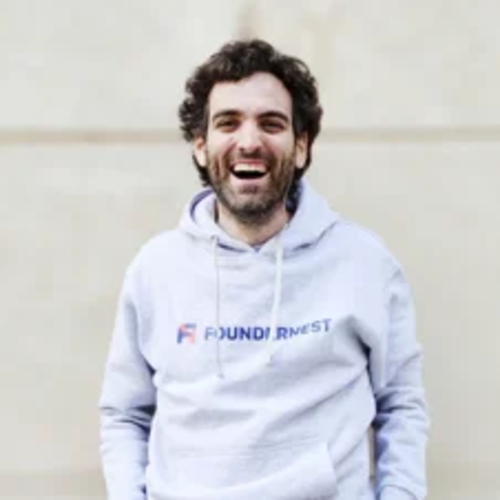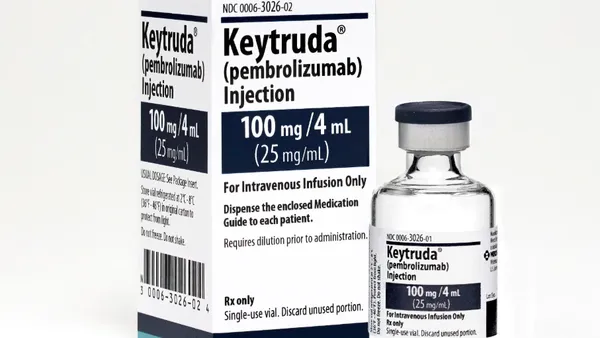When Elizabeth H.Z. Thompson, Ph.D., was a little girl, she wanted to be an engineer and a pilot, just like her dad. He was a military test pilot, and they bounced around the West coast a lot, largely between her mother's hometown of Portland, Ore., and the Mojave Desert, where her dad was stationed at the National Test Pilot School.
The test pilots had to spend time flying gliders to keep their reflexes sharp and also, perhaps, solve the puzzle of flying a plane that suddenly doesn't have an engine. Thompson often accompanied her dad, getting towed into the sky by an airplane and released, before gliding their way back to the ground in the little motorless aircraft.
"I spent a lot of time when I was young flying a glider, and just thought it was the most amazing thing ever," she says.
Thompson is now executive vice president of research and development for Horizon Therapeutics, a global biotech company that develops medicines for rare, autoimmune, and severe inflammatory diseases. From the company's South San Francisco location, she guides research, pre-clinical, and clinical development activities across its portfolio.
After joining Horizon in 2018, Thompson steered the expedited filing and January 2020 approval of Tepezza, the company's thyroid eye disease treatment. Its FDA OK marked the first drug approved for the vision-threatening rare condition.
Needless to say, Thompson didn't become a test pilot.
"This, you see," she says, gesturing toward her glasses, "may have put a little bit of a crimp in that plan."
But she didn't stop having fun — which is the word Thompson uses the most often to describe her work — and it’s an approach that she’s brought to helping patients and paving the way for the next generation of female scientists.
Flying high in pharma
Even as a kid, she'd always loved math and science, loved finding and creating puzzles and solving them.
"I would make mathematical equations out of the time on the motorway," she says.
She eventually earned a doctorate in macromolecular and cellular structure and chemistry from the Scripps Research Institute and realized that she loved "the scientific problem of trying to figure out how to design the best possible experiment."
Meanwhile, she was designing her life and collecting pieces of that puzzle along the way. Falling in love with physical chemistry made it "incredibly clear" that she didn't want to be an engineer.
Working briefly in media showed her the power and importance of communicating science to the public, and a short stint in public relations for biotech companies opened the door to a new way to pursue science.
Finally, with all those puzzle pieces in her hands, she went to work in biotech, and everything clicked into place: The fun, the scientific challenges, and most importantly, the chance to help people.
Hooked on patient impact
"From the first time that we got a patient letter talking about the impact that one of the drugs that I worked on had had on that patient's life…I was hooked," she said.
Over the course of her career, Thompson has continued to be driven by the patients whose lives are changed because of her and her team's work.
"R&D is an area where things fail a lot," she says. "And what gets us through our tough times is the fact that we can always envision that there's a patient at the end, who hopefully is going to benefit from something we do."
And when things don't fail? It's like watching the stars align.
She points to her recent experience with Tepezza, which she again says was "fun," not only because they had a chance to help patients in a brand-new way, but because the clinical results were so crystal clear.
"It was just an obvious, immediate sense that this was going to be something that was going to do something meaningful for patients," she says. "It was a lovely constellation of something that was new and something where we did our job, but the drug did as well."
After all, she says her job at Horizon is "giving the medicine its opportunity to show what it can do."
Paying it forward
On top of letting the medicine show its value, Thompson also focuses on giving people around her their opportunity to show what they can do. She was named a 2021 Healthcare Businesswomen's Association Luminary for her work as an active mentor and sponsor. She's worked with other groups within Horizon to develop short-term employee exchange programs that allow people to work on projects that they might not normally get to be a part of. She's also willing to help develop people's potential in whatever way is best for them, even if that means losing them to another part of the business.
"I'm always looking for a practical opportunity that I can craft for people that will help give them skills that will set them up for whatever the next stage is," she says. "If I'm going to have any impact on the broader ecosystem it's going to be by advancing the careers of the people around me."
Thompson and Horizon are providing these opportunities to the community, too, with programs like NexGeneGirls, which provides opportunities for young girls of color from low-income communities to get involved and work with mentors in STEM. The experience includes internships in labs, where they learn "the kinds of skills that, no matter what these girls do in their lives, are going to put them in good stead," Thompson says.
Much like her glider flying days and being encouraged in math and science as a kid did for her, Thompson is adamant about paving the way for women in STEM.
She isn't alone in this work at Horizon: Women make up roughly 70% of the R&D organization, and 2019 and 2021 surveys show that the company has pay equity across gender and ethnicity.
"We have some pieces in place that help women feel comfortable, feel valued," she says, including seeing women in leadership positions. "There is something to be said for being able to look around you and see people who have had a similar experience."
Promoting equity is not only the "right thing to do," but is also "a business and competitive advantage," she says.
"By looking more broadly at where talent can come from, and being more open to where ideas come from, we are going to wind up in a better business situation," she adds.
Now, Thompson continues to look toward the future. For instance, she points to Horizon's February 2021 acquisition of the biotech company Viela Bio, which has given her the opportunity to figure out how to maximize daxdilimab (HZN-7734), a plasmacytoid dendritic cell depleter that they believe has potential in many autoimmune and inflammatory diseases.
In other words, it's another puzzle to solve.
"Those are fun places to play," she says.
Fun. There's that word again.









